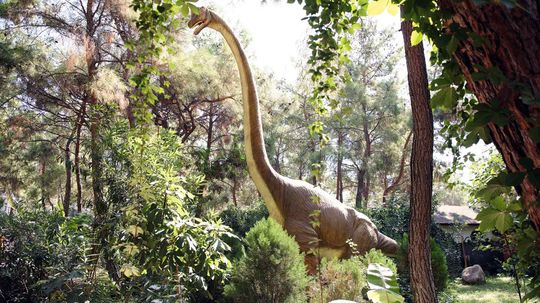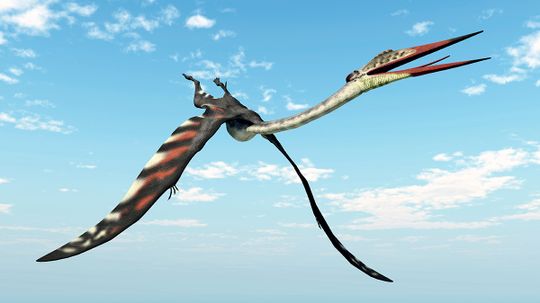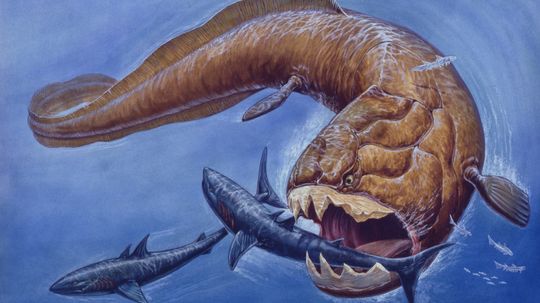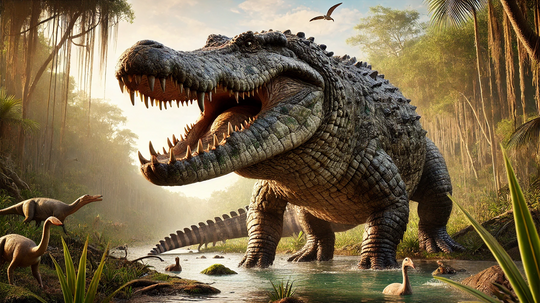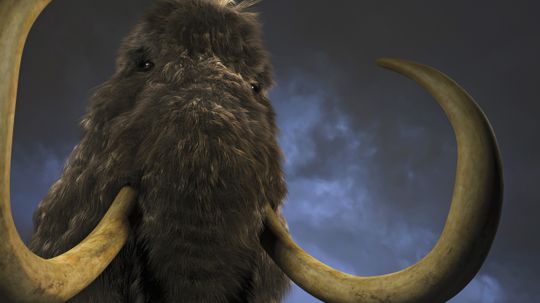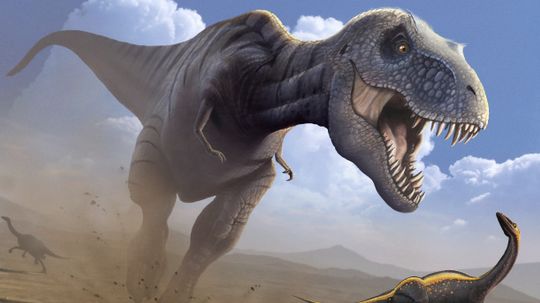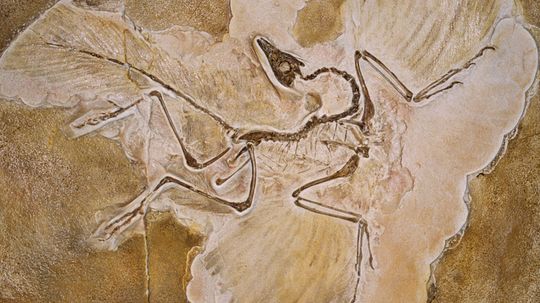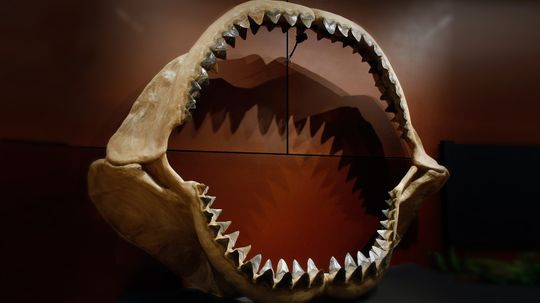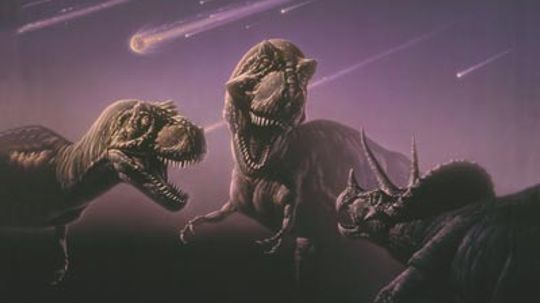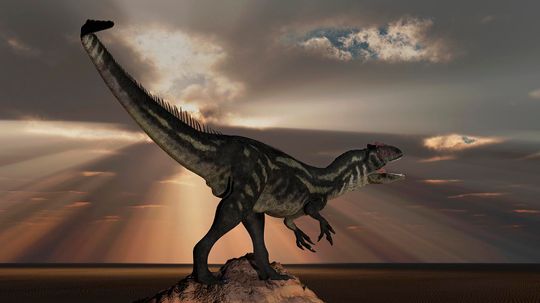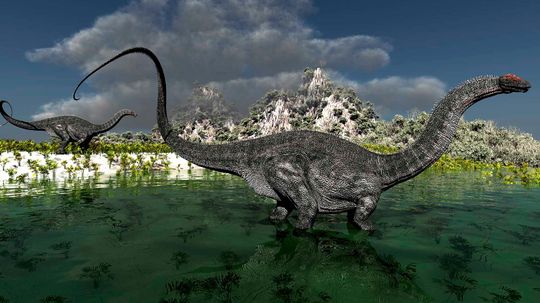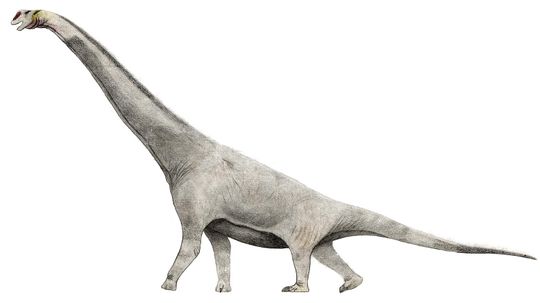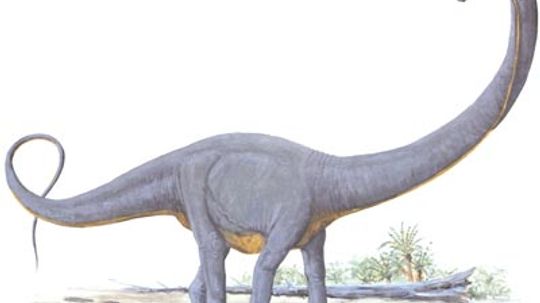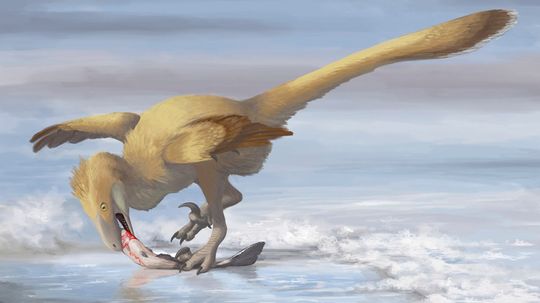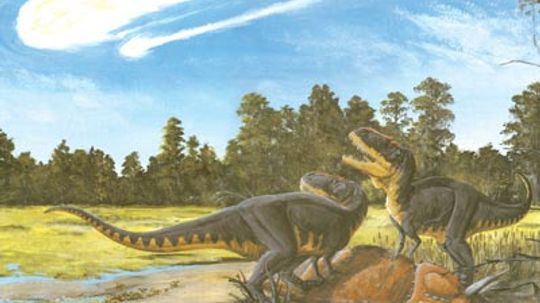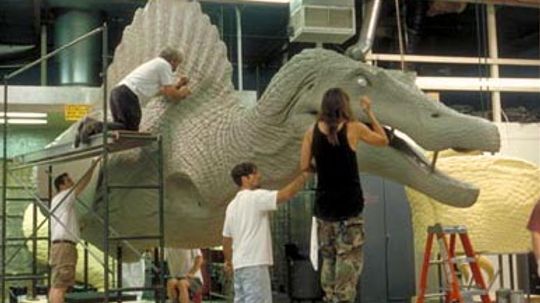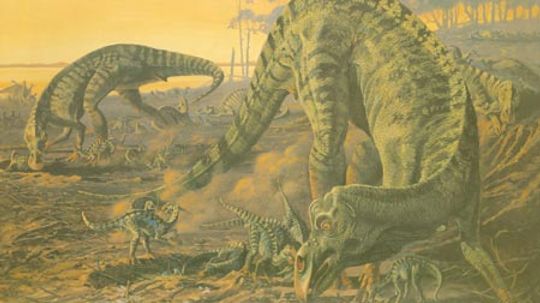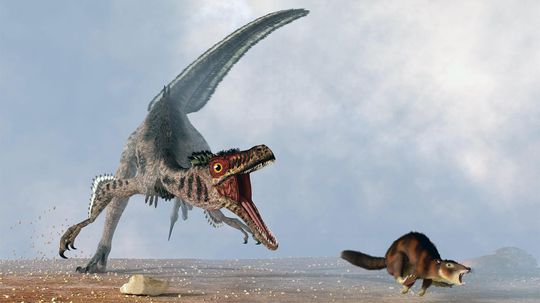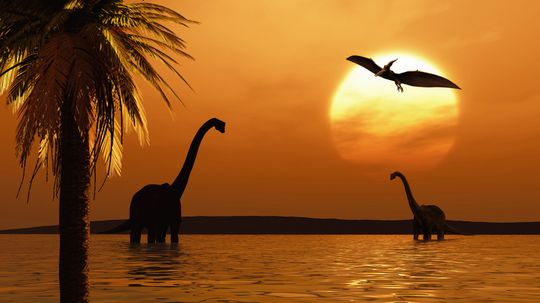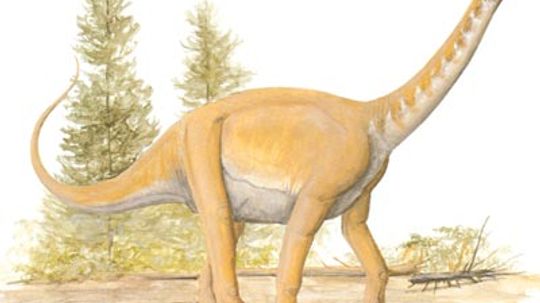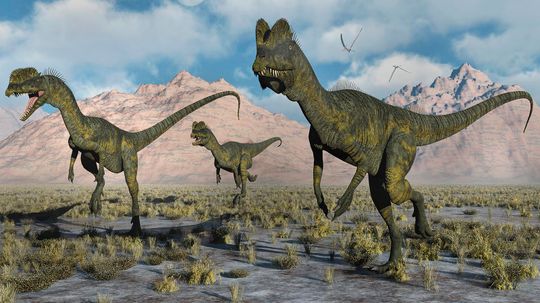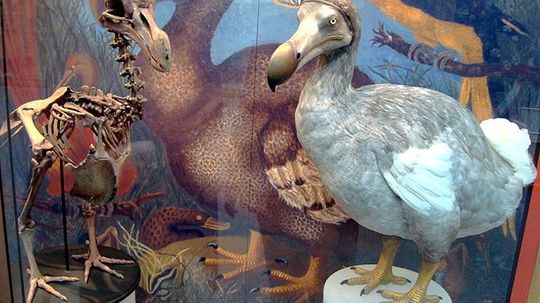Extinct Animals
Extinct animals are those species which are no longer living. This group includes prehistoric animals like dinosaurs and ice-age mammals, as well as moden species like the Dodo.

12 Scariest Dinosaurs You'd Want to Avoid While Time Traveling
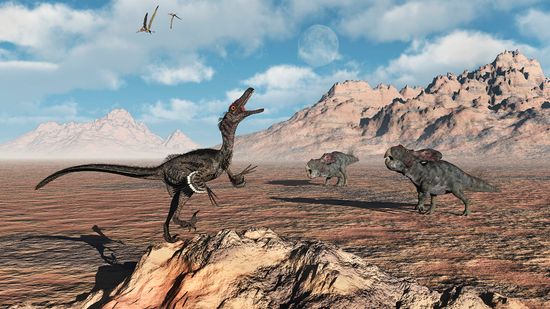
The Smartest Dinosaur (and 9 More Clever Prehistoric Reptiles)
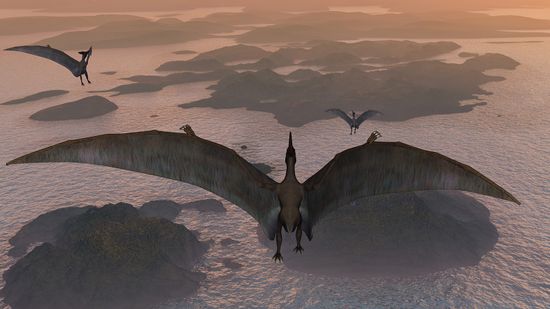
Pteranodon vs. Pterodactyl: Comparing Non-dinosaur Species

Are Snakes With Legs a Real Thing?
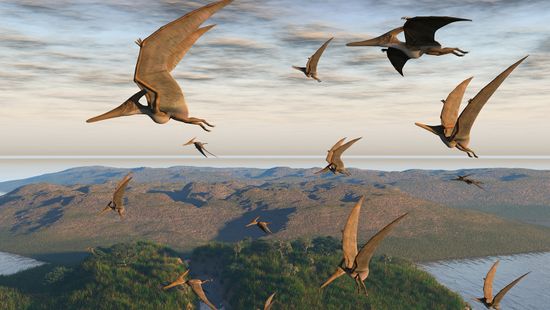
There Were No Flying Dinosaurs, Only Flying Reptiles
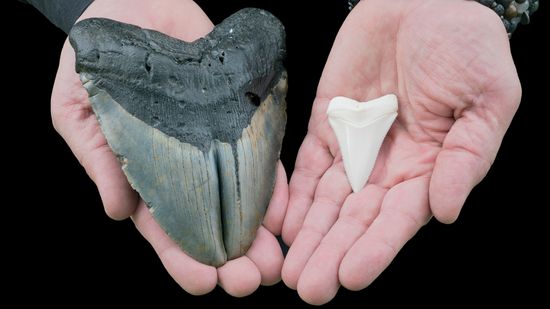
All About the Megalodon, Shark Giant of Prehistoric Times
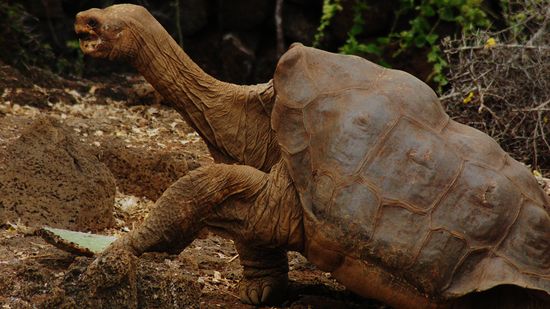
The Most Recent Extinct Animal Was Last Seen in 1995
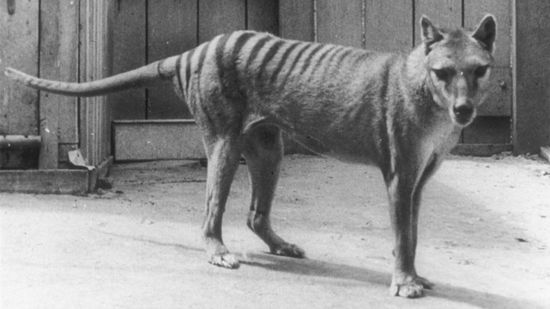
Real Life 'Jurassic Park'? Scientists Work to Bring Back Extinct Thylacine
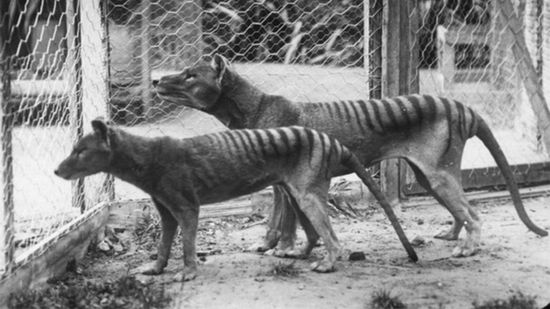
Once Thought Extinct, the Tasmanian Tiger May Still Be Prowling the Planet
Learn More / Page 3
A lot of prehistoric animals were massive, but do we really know why? And is there a larger animal roaming the planet today?
They were creatures of the air, but they aren't part of the avian family tree - and don't call them dinosaurs. What was life like for the pterosaurs, and what has sparked renewed interest in these flying reptiles?
A stunning array of strange and ferocious aquatic beasts patrolled Earth's waters long before they became the stuff of legends and "Jurassic Park" movies. One could eat a great white shark in one gulp.
By Chris Opfer
Advertisement
If you thought sea monsters were just the stuff of myth, you thought wrong. With giant, razor-sharp teeth, ancient cetaceans - the ancestors to modern whales, dolphins and porpoises - make even nightmares seem dull.
By Marie Look
Hop in your time machine, set the clock back a few thousand years and meet some woolly wonders. They even have a few things to teach us about the fate of modern elephants.
OK, hop in your time machine and go back 67 million years or so to the Cretaceous period. Then find a Tyrannosaurus rex and challenge it to a race. Sounds crazy, huh? Could you really outrun a Tyrannosaurus rex?
Learn more about the top 10 most mysterious creatures to disappear from the earth.
Advertisement
The megalodon was born as big as an adult great white and grew to weigh as much as 7 Tyrannosaurus rex. Learn all about the megalodon.
It isn't hard to imagine this scene even though dinosaurs haven't walked the earth for millions of years. Dinosaurs have captured our imaginations. These dinosaur articles have been written to lead you into the exciting world of dinosaur research and back to the "Age of Dinosaurs."
A full grown Allosaurus could be up to 34 feet long, stand 9 feet tall and weigh around 3 tons. This dino was a monster who, scientists suspect, would even eat his own kind.
By Mark Mancini
Apatosaurus was a huge sauropod from the Jurassic period. And there's a debate that's been raging for decades about whether its genus should cancel out the Brontosaurus entirely.
By Mark Mancini
Advertisement
Brachiosaurus has been portrayed in popular culture many times, but the representations of this mysterious dinosaur are largely based on another massive dino called Giraffatitan brancai.
By Mark Mancini
Supersaurus was a dinosaur that truly deserved its name. It measured about 100 feet in length and lived in North America. This dinosaur lived on a diet that consisted mostly of chutes and leaves from the tops of trees.
The 1964 discovery of Deinonychus in southern Montana was groundbreaking for many reasons, mostly because it helped prove that birds are direct descendants of dinosaurs.
By Mark Mancini
Dinosaurs became extinct at the end of the Cretaceous Period. How and why is a puzzle that paleontologists are trying to solve by studying fossils and rock formations. Learn more about the different extinction theories.
Advertisement
Interest in dinosaurs soared to new heights in the 1990s, thanks largely to the blockbuster film Jurassic Park. So too did dinosaur discoveries. Since 1990, more than 100 new dinosaur genera have been described and named. Learn more about recent dinosaur discoveries.
Since it was named in 1979 by John Horner and Robert Makela, Maiasaura has become one of the most famous dinosaurs. It has provided information about how it cared for its young and the early development of dinosaurs. Learn more about the Maiasaura.
The Velociraptors in "Jurassic Park" were roughly the size of humans. In reality, they were about the size of an average turkey.
By Mark Mancini
Types of dinosaurs include the lizard-hipped dinosaurs and the bird-hipped divisions of dinosaurs. Both of these types of dinosaurs probably shared a common ancestor during the Middle Triassic. How else are these dinosaurs related?
By Mack Hayden
Advertisement
Barapasaurus is named for a word meaning "big leg" in a local dialect in central India. This large dinosaur was a herbivore with large flat teeth that are ideal for cutting or crushing vegetation. What did this dinosaur look like?
Perhaps no other beast has been more wildly mischaracterized in popular culture than the crested predator Dilophosaurus.
By Mark Mancini
Although it may be long extinct, this quirky bird continues to amaze scientist. The latest discovery? An awesome "musket ball" weapon located on the tip of its wing structure. Could our world once again include this big, old flightless pigeon?
